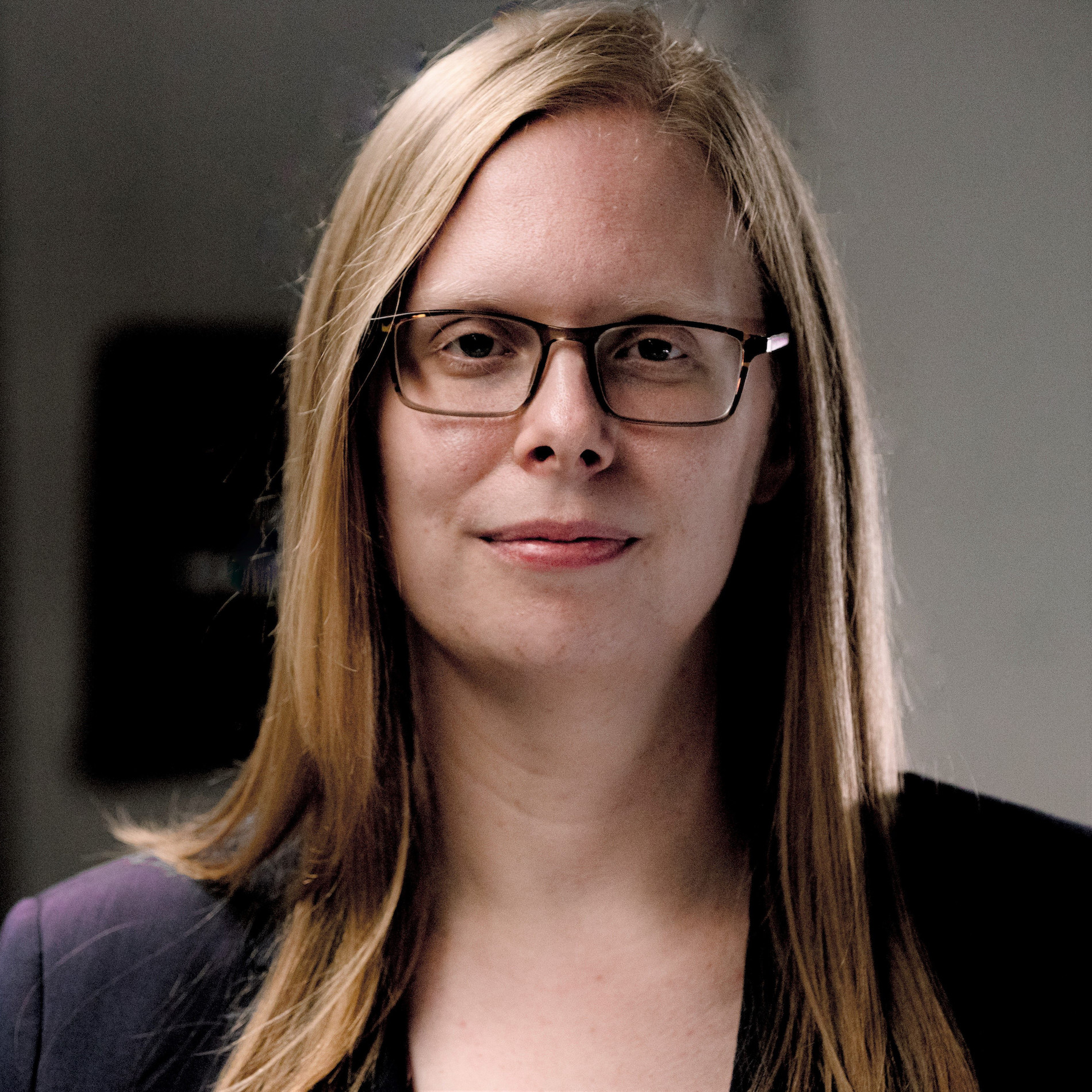As part of the podcast series, “ArtsAbly in Conversation,” Diane Kolin interviewed Elizabeth McLain, Assistant Professor of Musicology and Director of Disability Studies at Virginia Tech.

This post presents the resources that Elizabeth McLain mentioned during the conversation. The episode will be published soon.
Elizabeth McLain
Elizabeth McLain is Assistant Professor of Musicology and Director of Disability Studies at Virginia Tech. She completed her Ph.D. and M.A. in Musicology at the University of Michigan. A proud Hokie, McLain earned a B.A. in Music and a B.A. in History at Virginia Tech. As a transdisciplinary scholar, McLain has two research areas. Her work on music and spirituality since 1870 confronts assumptions about secularization by deciphering the spiritual and religious references in modernist and postmodernist musical compositions. Devout, skeptical, mystical, or manipulative, a composer’s spiritual journey remains relevant to understanding their works. Her doctoral dissertation was supported by a Lurcy Fellowship.
Read more about Elizabeth McLain
Music and Disability Studies Group
Official Study Group of the American Musicological Society (AMS) presenting the work of scholars with interdisciplinary interests in music and disability studies. Other groups with similar interests include the Disability and Music Interest Group of the Society for Music Theory (SMT) and the Special Interest Group (SIG) for Disability and Deaf Studies of the Society for Ethnomusicology (SEM).
Read more about the Music and Disability Studies Group
Inaccessible Musicology movement on Facebook (#InaccessibleMusicology)
Records of Access Fails in musicology. Speaking up is the first step to making change. Access is broad, and this group understands it broadly (disability, race, gender, sexual orientation, nationality, socioeconomic, parenting status, & more).
Visit the Inaccessible Musicology Facebook group
RAMPD
RAMPD (Recording Artists and Music Professionals with Disabilities) est une plateforme professionnelle qui dote l'industrie de la musique et du spectacle vivant d'outils, de programmes et de stratégies favorisant l'intégration des personnes handicapées. RAMPD connecte également l'industrie à un répertoire mondial de créateurs de musique/son et de professionnels de l'industrie ayant un handicap, une neurodivergence et d'autres conditions chroniques ou de santé mentale, afin de trouver des sources et d'embaucher - apportant des opportunités compétitives, une visibilité et une communauté à nos membres professionnels tout en offrant l'inclusion du handicap aux partenaires de l'industrie/des lieux de spectacle. La mission du RAMPD est d'amplifier la culture du handicap, de promouvoir l'inclusion équitable et de plaider pour des espaces inclusifs et accessibles dans les industries de la musique et du spectacle vivant. Fondé en mai 2021 (et établi en janvier 2022) par l'artiste primé et activiste culturel Lachi, le RAMPD a vu le jour après qu'une discussion publique entre la Recording Academy et plusieurs artistes handicapés ait révélé le grave manque de visibilité, d'accès et de représentation pour les professionnels de la musique en situation de handicap.
Visit Elizabeth McLain’s RAMPD profile
Gaelynn Lea
Depuis qu'elle a remporté le Tiny Desk Contest de NPR Music en 2016, Gaelynn Lea a captivé le public du monde entier avec ses chansons originales envoûtantes et ses airs de violon traditionnels. Au fil des ans, elle a collaboré et s'est produite avec de nombreux artistes de renom tels que Michael Stipe (REM), The Decemberists, Wilco, LOW et le supergroupe de rock industriel Pigface. En 2022, Gaelynn Lea a composé et enregistré la musique originale de Macbeth à Broadway, avec Daniel Craig et Ruth Negga. Grâce à une récente bourse Whippoorwill Arts Fellowship, sa bande originale d'inspiration théâtrale devrait sortir au printemps 2025. Une tournée pour ce nouvel album, Music from Macbeth, aura lieu au Royaume-Uni peu après. Outre la musique, Gaelynn Lea est une conférencière très demandée sur l'accessibilité dans les arts. Elle a participé à PBS NewsHour, On Being with Krista Tippett, The Moth Radio Hour, The Science of Happiness Podcast, ainsi qu'à deux conférences TEDx largement diffusées.
Visiter le site web de Gaelynn Lea
Ashley Shew
Ashley Shew (Associate Professor of Science, Technology, and Society at Virginia Tech) is a philosopher of technology with work in animal studies, disability studies, biotech-ethics, and emerging technologies. She is PI on a new Mellon Foundation-funded project called Just Dis Tech (2023-2025), which engages disability arts and culture to promote humanistic reflection to better honor disabled expertise, especially in the context of science and technology.
Luke Kudryashov
Luke Kudryashov is the senior digital accessibility analyst at the University of Minnesota Twin Cities Disability Resource Center. He has a background in digital accessibility, user experience, disability studies, and disability culture. Passionate about the intersection of user experience research and design, library science, and digital accessibility, he approaches accessibility holistically, integrating technical accessibility with an understanding of disability culture and community. He loves deeply listening to and observing people’s experiences to learn how to make technology better fit their needs.
Read Luke Kudryashov‘s Master’s Thesis
Alt-Text Music Notation Working Group
Research conducted as part of the Disability Community Technology Center. If you are interested in joining the working group, contact Elizabeth McLain at emclain [at] vt.edu.
Open the Gates Gaming
Open the Gates Gaming is a research collective at Virginia Tech that focuses on inclusion and access broadly construed in tabletop role-playing games (TTRPGs). Play is a human right, and Open the Gates Gaming (OtG) empowers everyone to tell their stories through the medium of TTRPGs. They develop open-access tools so everyone can play together without altering the rules of the game, adding flexibility to make systems like Dungeons & Dragons 5th edition more accessible. The adventures they write represent creative arts-based research on opera that does not merely witness or reenact one author’s story, but instead allows players to inhabit the operas, wrestle with exclusionary narratives, and craft their own hero’s journey.
Know more about Open the Gates Gaming
Andrew Dell'Antonio
Andrew Dell'Antonio (il/elle/son) est spécialisé dans les répertoires musicaux du début de l'Europe moderne, et plus particulièrement de l'Italie du XVIIe siècle. Ses recherches portent sur l'historiographie musicale, l'histoire de la réception et les études sur le handicap. En partie stimulé par son expérience personnelle de la neurodivergence, il s'est récemment intéressé à la conception universelle de l'apprentissage et aux approches critiques connexes de l'antiracisme, de l'antihandicap et de l'équité intersectionnelle / inclusion dans la pédagogie musicale de l'enseignement supérieur. La page académique comprend également une présentation vidéo sous-titrée.
Visit Andrew Dell’Antonio’s academic page
Visit Andrew Dell’Antonio’s personal website
Listen to Andrew Dell’Antonio’s interview on “ArtsAbly in Conversation”
Amy Sequenzia
Amy Sequenzia is an American poet, writer, disability rights, civil rights, and human rights activist, with multiple disabilities and nonverbal autism. She also has epilepsy, cerebral palsy, dyspraxia, and insomnia. Sequenzia is the co-editor of Typed Words, Loud Voices, a book on augmentative and alternative communication. She is a frequent contributor to the Autism Women’s Network and Ollibean.com. She is also a board member of the Autistic Self Advocacy Network and the Florida Alliance for Assistive Services and Technology.
Read the interview of Amy Sequenzia on Huffpost
Disability Culture at the University of Michigan (DC@U-M)
A cross-disability group is dedicated to bringing disabled community together. They foster friendships, coordinate events, and work toward the establishment of a Disability Cultural Center at the University of Michigan.
